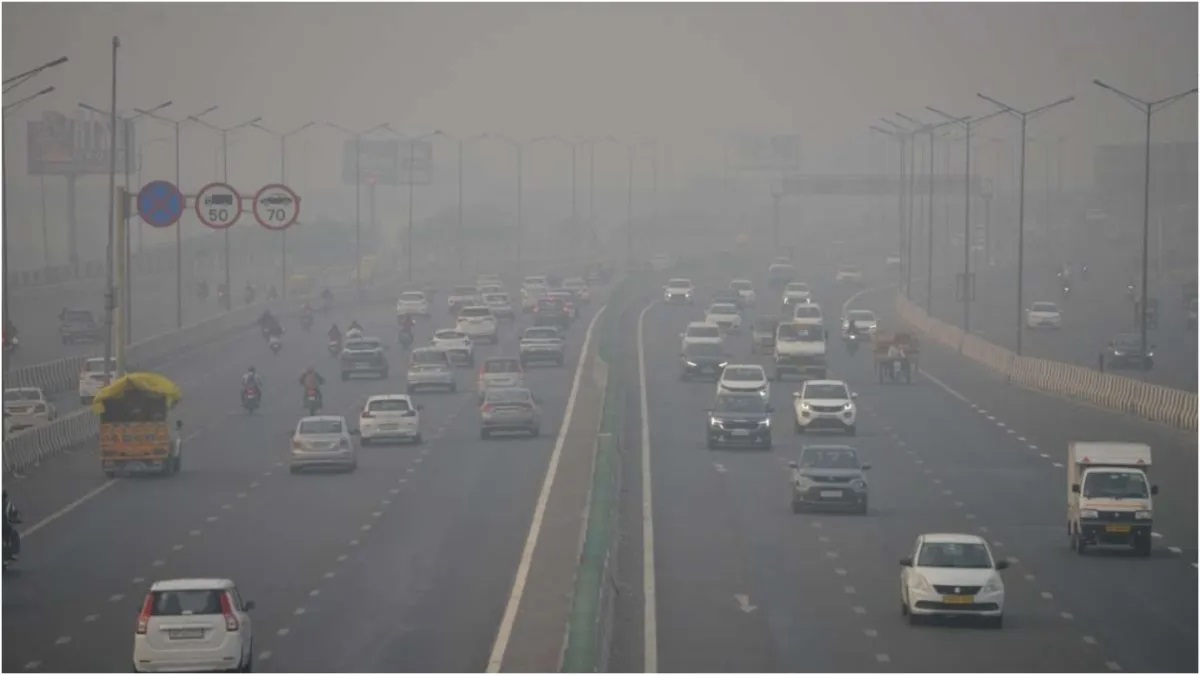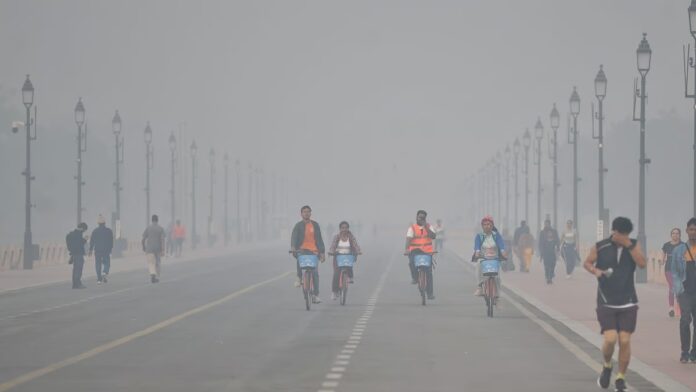Delhi’s Traffic Police Launches Historic Anti-Pollution Drive
Delhi Traffic Police has set a new record by imposing fines worth ₹5.85 crore in a single day as part of its intensified efforts to tackle air pollution in the national capital. With air quality plunging to alarming levels in recent weeks, authorities have ramped up enforcement of the Graded Response Action Plan (GRAP) Stage 3 measures. The massive crackdown involved issuing over 550 challans on Friday to violators of critical pollution norms, signaling the government’s zero-tolerance policy against non-compliance.
Heavy Fines For Violating BS Vehicle Ban And PUCC Rules
One of the key focus areas of this drive has been the enforcement of the ban on BS III petrol and BS IV diesel vehicles, which contribute significantly to vehicular pollution. These outdated vehicle models have long been identified as major culprits in exacerbating Delhi’s pollution crisis. Violations of this ban accounted for over ₹1 crore in fines.
Another major target was vehicles operating without valid Pollution Under Control Certificates (PUCC), a crucial document that ensures a vehicle’s emissions meet prescribed standards. Shockingly, fines worth ₹4.8 crore were issued to such violators in a single day. Officials have reiterated that carrying a valid PUCC is not just a legal requirement but also a moral responsibility in a city grappling with hazardous air quality levels.

Understanding The Graded Response Action Plan (GRAP)
The Graded Response Action Plan, commonly known as GRAP, is a comprehensive framework designed to combat air pollution in Delhi-NCR. It involves activating specific measures based on the city’s Air Quality Index (AQI) levels. Stage 3, which is currently in effect, includes strict restrictions on construction activities, a ban on non-essential vehicle movement, and stringent monitoring of emissions from industrial and vehicular sources.
The decision to enforce GRAP Stage 3 measures came as Delhi’s AQI consistently crossed the 400 mark, placing it in the “Severe” category. Prolonged exposure to such air quality levels poses serious health risks, particularly for children, the elderly, and individuals with pre-existing respiratory conditions.
The Role Of Traffic Police In Pollution Control
Delhi Traffic Police has emerged as a critical force in the city’s battle against pollution. Equipped with advanced tools such as mobile pollution-checking devices and digital challan systems, traffic police teams are conducting rigorous checks at strategic locations across the city. Their efforts have been instrumental in identifying and penalizing violators, thereby fostering greater public compliance with anti-pollution norms.
An official from the traffic department emphasized the significance of these fines, stating, “This is not just about penalizing violators but also about sending a strong message that pollution control is a collective responsibility. Every citizen must play their part in ensuring cleaner air for all.”
Why BS III And BS IV Vehicles Are Banned?
The ban on BS III petrol and BS IV diesel vehicles is rooted in their high levels of emissions compared to newer models equipped with advanced emission-control technologies. These outdated vehicles release excessive amounts of harmful pollutants such as nitrogen oxides and particulate matter, which contribute significantly to Delhi’s toxic air.
While the enforcement of this ban is a step in the right direction, experts argue that long-term solutions require incentivizing the adoption of cleaner energy vehicles, such as electric and CNG-powered alternatives. The government has been urged to provide subsidies and expand the charging infrastructure to accelerate the transition to sustainable mobility.
Non-Compliance With PUCC Rules: A Growing Concern
Despite repeated awareness campaigns and warnings, non-compliance with PUCC rules remains a major challenge in Delhi. The ₹4.8-crore fine imposed on vehicles without valid PUCCs highlights the scale of the problem. Many vehicle owners neglect the importance of regular pollution checks, either due to ignorance or a lack of strict enforcement in the past.
Environmentalists have pointed out that a valid PUCC not only ensures a vehicle’s emissions are within permissible limits but also helps reduce the overall carbon footprint of urban transportation. Authorities have called for stricter monitoring and public awareness initiatives to address this issue effectively.
Public Reactions To The Crackdown
The massive fines imposed during this drive have elicited mixed reactions from the public. While many citizens have lauded the traffic police’s efforts to curb pollution, others have expressed concerns about the lack of adequate infrastructure to support compliance.
A commuter who was fined for not carrying a valid PUCC remarked, “The government must ensure that pollution-checking centers are easily accessible and affordable for all. At the same time, vehicle owners should take responsibility for adhering to the rules.”
Social media platforms were abuzz with discussions on the crackdown, with some users sharing their experiences of being stopped at traffic checkpoints. Many applauded the authorities’ proactive approach, while others called for a more holistic strategy to tackle Delhi’s pollution crisis.
The Broader Impact Of GRAP Measures
Beyond fines and enforcement, GRAP measures have had a broader impact on raising awareness about pollution control. The framework has prompted businesses to adopt cleaner technologies, encouraged citizens to use public transportation, and spurred policy discussions on long-term solutions for improving air quality.
Delhi’s pollution crisis is not just a local issue but a national concern that requires coordinated efforts from all stakeholders. The success of GRAP depends on effective implementation, regular monitoring, and active participation from the public.
Looking Ahead: A Collective Responsibility
Delhi’s recent crackdown on pollution norm violations underscores the urgent need for collective action to address the city’s air quality challenges. While the traffic police’s efforts are commendable, the fight against pollution requires sustained commitment from citizens, policymakers, and industry leaders alike.
By fostering a culture of compliance and accountability, Delhi can set a precedent for other cities grappling with similar issues, paving the way for a cleaner, healthier future.


